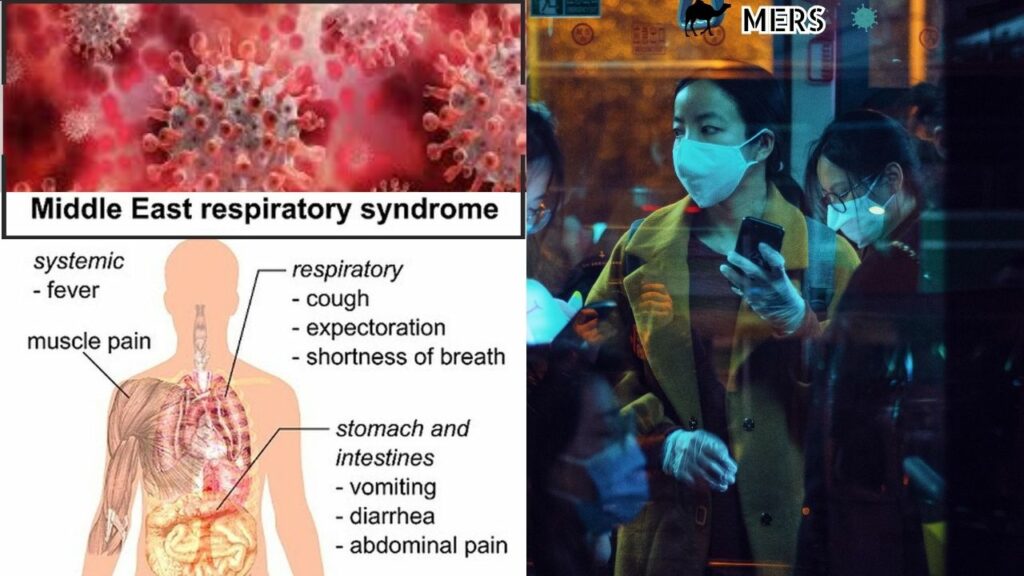Middle East Respiratory Syndrome – UAE
On 10 July 2023, the United Arab Emirates (UAE), notified WHO of a case of Middle East Respiratory Syndrome Coronavirus (MERS-CoV) in a 28-year-old male from Al Ain city in Abu Dhabi.
The patient was admitted to the hospital on 8 June. A nasopharyngeal swab was collected on 21 June and tested positive for MERS-CoV by polymerase chain reaction (PCR) on 23 June 2023. All 108 identified contacts were monitored for 14 days. No secondary cases have been detected to date. Since July 2013, a total of 94 cases, including the new one, and 12 deaths have been reported. Humans can be infected with Mers following direct or indirect contact with animals such as camels. The 28-year-old man in Al Ain in Abu Dhabi had “had no history of direct or indirect contact with dromedaries, goats, or sheep” according to WHO.
MERS
Middle East respiratory syndrome (MERS) is a viral respiratory infection that is caused by a coronavirus called Middle East respiratory syndrome coronavirus (MERS-CoV). Humans are infected with MERS-CoV from direct or indirect contact with dromedary camels who are the natural host and zoonotic source of the MERS-CoV infection. MERS-CoV infections range from asymptomatic or mild respiratory symptoms to severe acute respiratory disease and death.
SYMPTOMS
A typical presentation of a person with Mers-CoV is fever, cough and shortness of breath. Pneumonia is a common finding, but may not always be the case. Gastrointestinal symptoms, including diarrhoea, have also been reported. Older people, people with weakened immune systems, and those with chronic diseases such as renal disease, cancer, chronic lung disease, hypertension, cardiovascular disease and diabetes appear to be at greater risk of developing severe disease.
TREATMENT
No vaccine or specific treatment is currently available. Although, several MersCoV-specific vaccines and treatments are in clinical development. Treatment is supportive and based on the patient’s clinical condition.
PRECAUTIONS
WHO advises, as a general precaution, anyone visiting farms, markets, barns or other places where dromedaries (type of camel)are present should practice general hygiene measures.
- Regular hand washing after touching animals.
- Avoiding touching eyes, nose or mouth with hands.
- Avoiding contact with sick animals.
- People may also consider wearing protective gowns and gloves while professionally handling animals.
- The consumption of raw or undercooked animal products, including milk, meat, blood and urine, carries a high risk of infection from a variety of organisms that might cause disease in humans.
GENOMIC ANALYSIS
- UN health agency has initiated the process for genomic analysis. This will identify any genetic evolution of the virus and support WHO’s global risk assessment efforts¸it will be important to sequence the virus and conduct genomic analysis to screen for any unusual patterns.
- Early identification, case management and isolation of cases, quarantine of contacts, appropriate infection prevention and control measures in health care settings, and public health awareness can prevent human-to-human transmission of MERS-CoV. Health care workers should consistently apply standard precautions to all patients at every interaction in healthcare settings.
Solar Car By UAE Details..
FAQs
1. What is Middle East Respiratory Syndrome (MERS)?
Middle East Respiratory Syndrome (MERS) is a viral respiratory illness caused by the MERS coronavirus (MERS-CoV). The disease was first identified in Saudi Arabia in 2012 and has since been reported in various countries, including the United Arab Emirates (UAE). MERS can lead to severe respiratory symptoms, and in some cases, it can be fatal.
2. Is there a vaccine available for MERS in the UAE?
As of my last update in September 2021, there was no specific vaccine approved for MERS. However, research and development efforts were ongoing to create a vaccine to combat the virus. It’s essential to follow updates from health authorities for the latest information on vaccine availability.
3. Are there any travel advisories related to MERS in the UAE?
The UAE, being a country in the Middle East region where MERS has been reported, may issue travel advisories for its citizens regarding destinations with ongoing MERS outbreaks. It’s crucial for travelers to stay informed about travel advisories and take necessary precautions while visiting countries with reported MERS cases.
